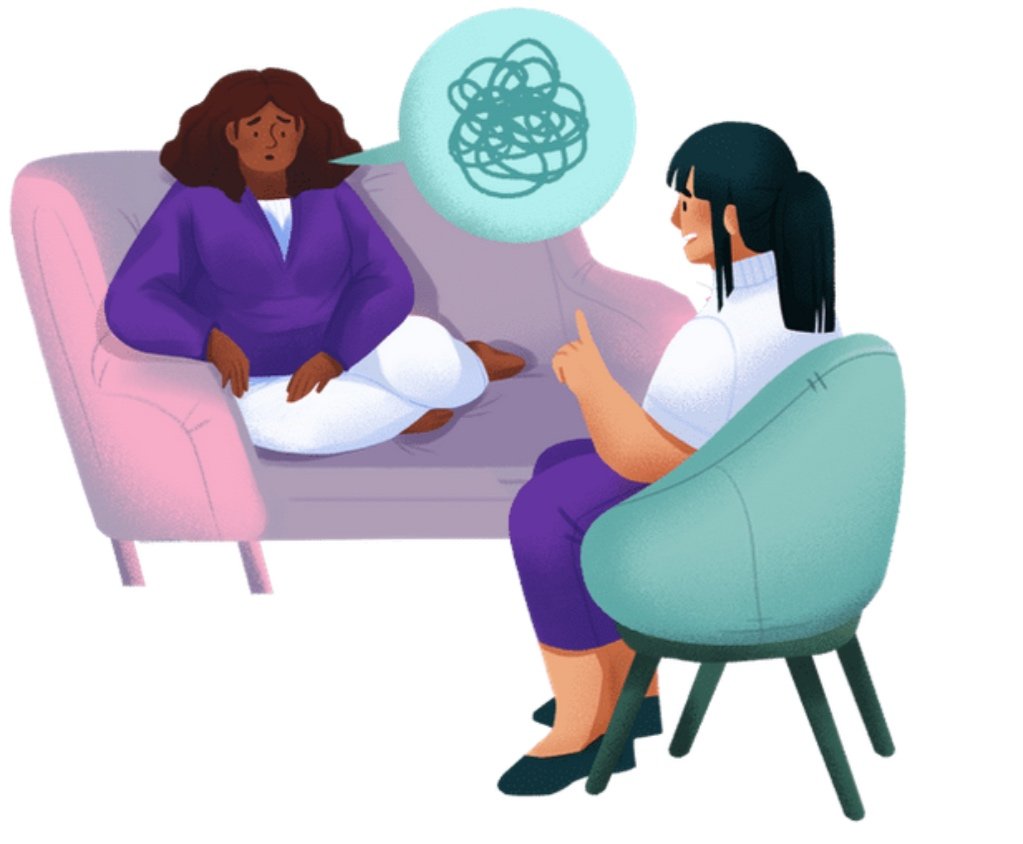How Your Pelvic Floor Affects Your Mental Health
I know what you’re thinking. How is my pelvic floor related to my psychological well-being? How on Earth could those two things even be connected?
Well, think about it for a moment. How would you feel if you couldn’t do something due to pain or leakage? How would you feel if you were unable to engage in activities you once enjoyed due to an injury to your pelvic floor? How would you feel if your body wasn’t doing what it was supposed to do?
All your feelings are valid. For those of you reading who have pelvic floor issues, I’m sure you nodded your head and thought “I’ve had these thoughts and feelings.” And for those who haven’t, you probably thought about the what-ifs. Regardless of what side of the thought process you’re on, both sides demonstrate the importance of why mental health is affected by the pelvic floor.
Pelvic floor dysfunction and pathologies greatly affect mental health and require support. Pelvic floor dysfunction, most commonly caused by pregnancy and delivery, is a chronic disease proven to affect a woman's mental health. This can be caused by bodily changes, birth, and/or postpartum trauma to the body. It may even be caused by a traumatic event unrelated to the perinatal period.
According to a study by Till et. al (2010) in the Clinical Obstetrics and Gynecology, approximately 15-20% of women in the United states are affected by chronic pelvic pain (CPP). People with pelvic pain suffer from psychological conditions at a higher rate compared to their peers. This means that about 1 in 5 women in the U.S has pelvic pain, and are at a higher risk of it affecting their mental health.
A loss of social connectedness can occur among women who have pelvic floor dysfunction. Leaking urine or having fecal incontinence may cause an individual to feel ashamed and want to not leave their home in the event they leak in public which can cause embarrassment. This can then lead to isolation and episodes of depression or anxiety.
Its also common for people who report pelvic floor dysfunction to also have sexual dysfunction. This can stem from pain with intercourse, orgasms, or pain after sexual activity. This may cause stress on an individual or relationship. People may struggle with communication, or avoid it completely which can affect the emotional and social connectedness in a relationship.
How and Who To Get Help From for Your Pelvic Floor and Mental Health
Choosing the right professionals to assist you with your pelvic floor or mental healthcare needs is necessary for the best interventions. The following list of professionals are a suggestive of professionals in different health and wellness industries that may provide services for your needs:
Pelvic Floor Therapist
Sex Therapist
Marriage/Family Therapist
Counselors
Couples Counselors
Primary Care Provider
OBGYN
Massage Therapists
Resources
Seeking assistance for mental health due to pelvic floor conditions from a professional or group may be essential to improving your mental health. Below are some local, national and international resources that can help anyone with their mental health journey due to pelvic floor dysfunction.
Local
Nurturing Moms is a social and educational group hosted by The Perinatal Pelvis through MeetUp.com in Hillsborough, NC. Nurturing Moms hosts low-cost educational workshops, and free events for moms to hangout, socialize, and get to know one another. Each monthly workshop is a different topic within the realm of pregnancy and postpartum with the goal of making your journey smoother and you feeling prepared.These events are very hands-on and run by experts in the field of pregnancy and postpartum. The cost of each class is $15. Classes are held on Saturdays usually 1x/month. Free events started Spring 2022 and are currently up and running 1x/month in the Hillsborough area.
Waypoint Counseling is a clinic in Durham, NC, that offers counseling for mothers and specializes in maternal wellness. They offer sessions both virtually and in person. Their mission is to promote the mental health of mothers and women through counseling, treatment, and education. And are committed to empowering mothers to prioritize their emotional health because when a mom feels her best, everyone benefits.
National
The National Alliance on Mental Health (NAMI) is a national organization in the United States dedicated to building better lives for Americans affected by mental health. NAMI provides education, advocacy, and public awareness for individuals and families affected by mental illness. They have a toll free helpline and email that can be reached Monday through Friday, 10 a.m. – 10 p.m., ET.
1-800-950-NAMI (6264) or helpline@nami.org
Postpartum Support International
Postpartum Support International (PSI) is an international organization that increases awareness, prevention, and treatment for mental health issues related to childbearing worldwide. PSI offers online support groups 5 days a week with over 14 specialty groups in both English and Spanish languages
References
Hillsborough nurturing mom (Hillsborough, NC). Meetup. (n.d.). Retrieved July 18, 2022, from https://www.meetup.com/hillsborough-nurturing-mom/
Krause, H. (2021). A multidisciplinary approach is needed to improve mental health and social connectedness in women suffering with obstetric fistula, chronic 4th degree tear and severe pelvic organ prolapse in limited resource regions. Australian and New Zealand Continence Journal, 27(4), 93-96. https://doi.org/10.3316/informit.172088454977053
Meihofer, D. L. (2022, June 1). Communicating with your partner about your pelvic floor concerns. Laura Meihofer. Retrieved July 18, 2022, from https://laurameihofer.com/communicating-about-your-pelvic-floor-concerns/
Postpartum support international - psi. Postpartum Support International (PSI). (2022, May 6). Retrieved July 18, 2022, from https://www.postpartum.net/
Till, S. R., As-Sanie, S., & Schrepf, A. (2019). Psychology of Chronic Pelvic Pain: Prevalence, Neurobiological Vulnerabilities, and Treatment. Clinical obstetrics and gynecology, 62(1), 22–36. https://doi.org/10.1097/GRF.0000000000000412
Triangle area postpartum depression and anxiety treatment: North Carolina. WaypointCounseling. (n.d.). Retrieved July 18, 2022, from https://www.waypointcounselingnc.com/
Zheng, Y., Yang, H., Yin, X., Ma, X., & Guo, L. (2021). Acupoint injection combined with pelvic floor rehabilitation in the treatment of postpartum pelvic floor disorders: A protocol of randomized controlled trial. Medicine (Baltimore), 100(23), e25511-e25511. https://doi.org/10.1097/MD.0000000000025511



